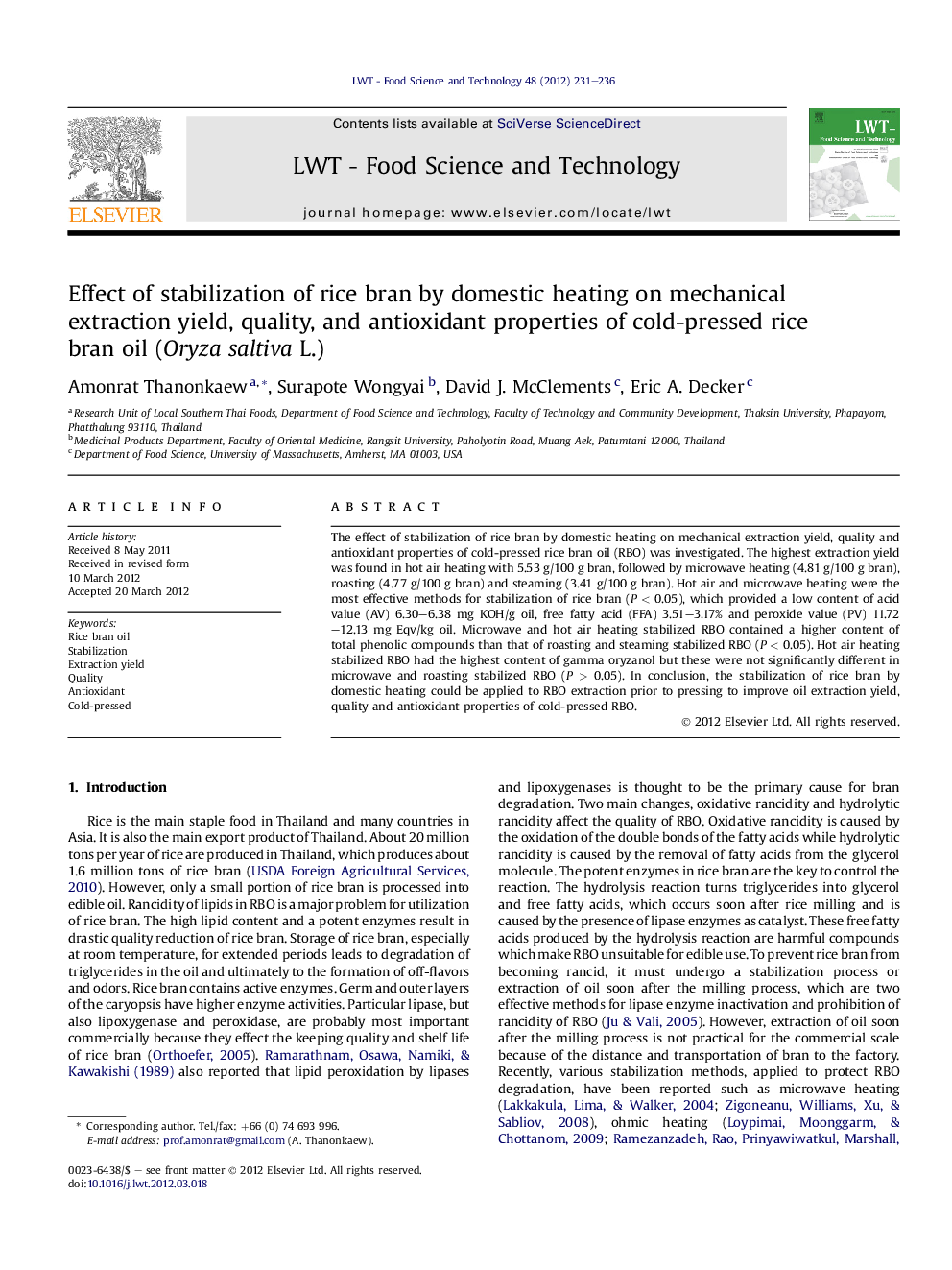| Article ID | Journal | Published Year | Pages | File Type |
|---|---|---|---|---|
| 6405276 | LWT - Food Science and Technology | 2012 | 6 Pages |
The effect of stabilization of rice bran by domestic heating on mechanical extraction yield, quality and antioxidant properties of cold-pressed rice bran oil (RBO) was investigated. The highest extraction yield was found in hot air heating with 5.53Â g/100Â g bran, followed by microwave heating (4.81Â g/100Â g bran), roasting (4.77Â g/100Â g bran) and steaming (3.41Â g/100Â g bran). Hot air and microwave heating were the most effective methods for stabilization of rice bran (PÂ <Â 0.05), which provided a low content of acid value (AV) 6.30-6.38Â mg KOH/g oil, free fatty acid (FFA) 3.51-3.17% and peroxide value (PV) 11.72-12.13Â mg Eqv/kg oil. Microwave and hot air heating stabilized RBO contained a higher content of total phenolic compounds than that of roasting and steaming stabilized RBO (PÂ <Â 0.05). Hot air heating stabilized RBO had the highest content of gamma oryzanol but these were not significantly different in microwave and roasting stabilized RBO (PÂ >Â 0.05). In conclusion, the stabilization of rice bran by domestic heating could be applied to RBO extraction prior to pressing to improve oil extraction yield, quality and antioxidant properties of cold-pressed RBO.
⺠Rice bran oil (RBO) has been used in many industries because of its unique properties. ⺠Rancidity of lipids in RBO is a major problem for utilization cold-pressed RBO. ⺠Domestic heating could improve yield, quality and antioxidant properties of cold pressed-RBO. ⺠Hot air and microwave heating were the most effective methods for stabilization of rice bran.
